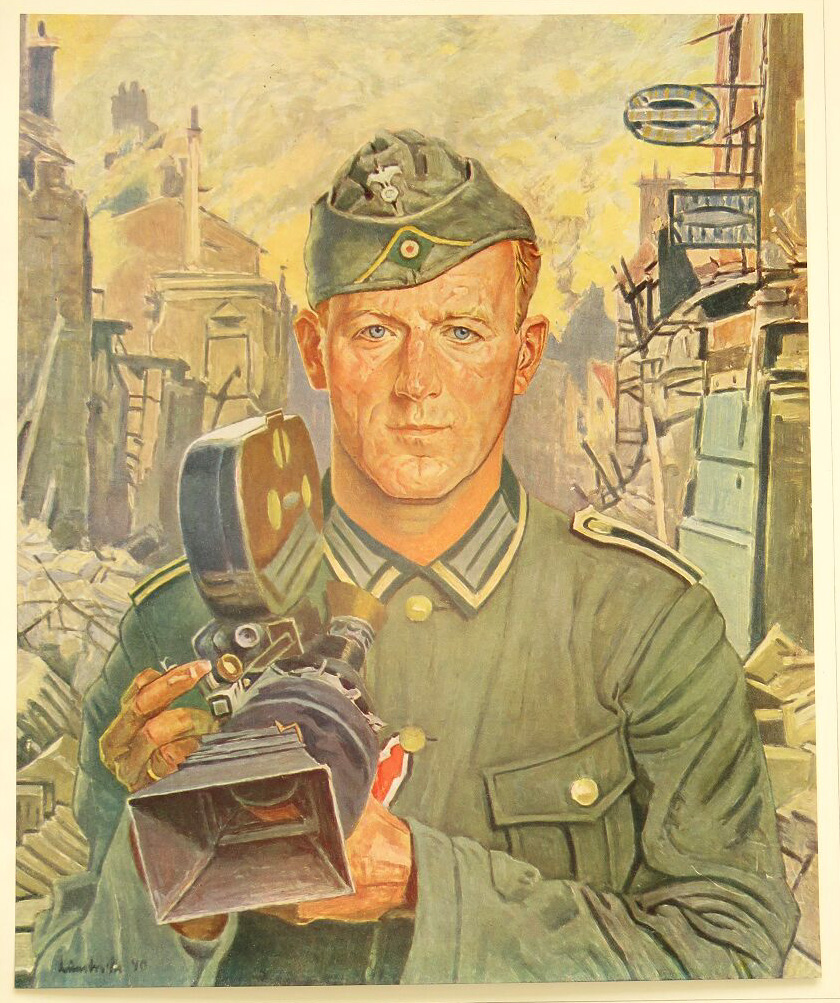Interview with Jean Loustau, French SS officer in 'Kurt Eggers', Paris, 1988.
[Above: A Waffen-SS combat photographer in 'Kurt Eggers'.]
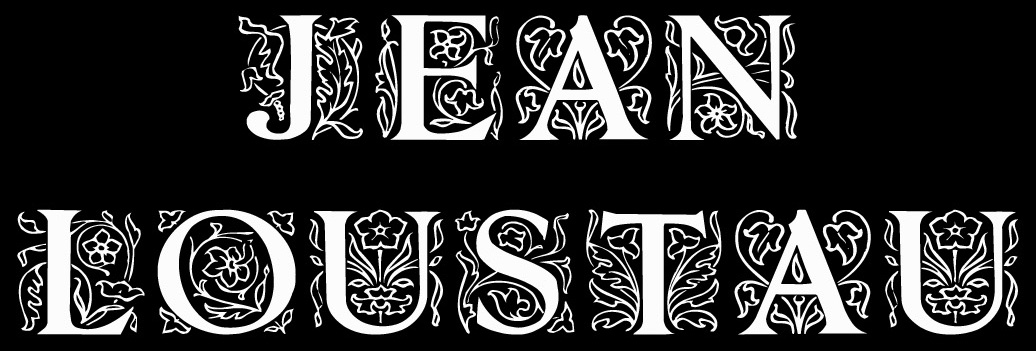
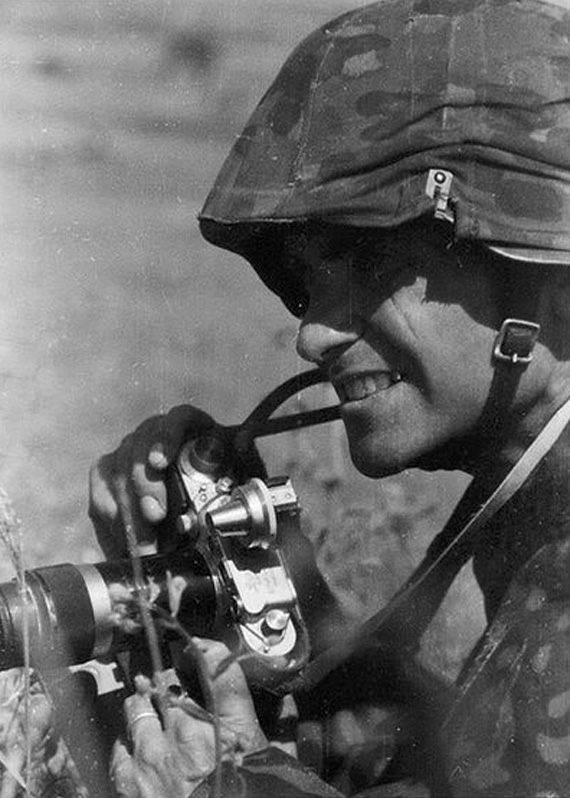

Interview with Jean Loustau, French SS officer in 'Kurt Eggers', Paris, 1988.
[Above: A Waffen-SS combat photographer in 'Kurt Eggers'.]



Jean: Yes, you are a good boy and I am pleased to meet you. I have to tell my story this way, I was fond of the way the Germans treated France after the armistice. They went out of their way to avoid needless killings and destruction. I should know, I was there in 1940, serving in the [Charles] de Gaulle regiment. I applauded his address of June 18th, but soon realized Germany was not the enemy we had been told they were. Europe was at a crossroads, either we would be nationalistic or communistic. There was no middle ground, even though the left made it seem so. You either loved your people and nation, wanting to protect your culture, or you did not.
I met some men of the SS and was greatly impressed by their love of European culture, not just German, but all of it. I traveled with some who were from the Ahnenerbe Society [Ancestral Heritage Society] and they were going to caves to do research. They spoke to me as a friend and were quite correct. They had a big team with them, I remember, with many students. The more I researched and read, the more I saw that Hitler was really trying to unite all Europeans to defend our culture from Jewish Bolshevism and their form of corrupt capitalism. I was already leaning to the right as a nationalist, and the German occupation pushed me off the fence. I had made many friends among the Germans and they always asked me to join them to defend our common bond. In 1943 I had made up my mind to help in the way I could, to bring their fight and ideals to the people. I was impressed by Gunther D’Alquen, he was of the highest caliber and always dressed smart.
I was offered a position in the Waffen-SS, with the promise that a new French legion was being created, and that I would be assigned to it if I wanted. I agreed to this and was made an SS-Untersturmführer and placed into the 'Kurt Eggers' company [an SS group of battlefield reporters, photographers, movie cameramen and writers, composed of many multilingual foreign volunteers, who were fully trained soldiers expected to fight if needed]. We had special passes to go to the front in the east to report. For a time I was part of the 'Nordland' Division that had thousands of European volunteers.
I will say there was a growing number of French who understood Hitler was onto something, under German occupation the lives of the people got better. It was not perfect mind you, but they implemented some of the good parts of National Socialism for the workers here. It enraged the communists, and Jews were part of this uprising. That is why so many were removed to the camps. They called for strikes and unrest and killed opponents; this is the resistance they speak of. So there you go, that is how I came to the SS.
[Above: Gunter d'Alquen was the chief editor of the weekly 'Das Schwarze Korps' (The Black Corps), the official newspaper of the Schutzstaffel (SS), and commander of the SS-Standarte 'Kurt Eggers', 1941-43.]
Jean: I do not understand, a hard time? No the Germans had always had bad feelings about the French, as we did them. Under Hitler however those feelings subsided, and I feel the 1940 victory purged them of the anger they held from the first war. I would sometimes be jokingly called funny names, but it was in jest. I can report that nowhere did I ever see Germans belittle, harass, threaten, or lord over any French. The fact that so many of the French girls fell for Germans is testament to the way the occupation was. I would stroll down the Champs-Élysées and I would see the pretty girls with Germans ice skating, dancing, and cuddling.
The shops warmly welcomed Germans and they greatly helped the economy. Something I bet you did not know is that the Germans had a program to send French to Germany to travel. If they worked for the war effort they got paid vacations to the Alps or river cruises. I know many French who did this. The girls could apply for colleges, jobs, and many became au pairs for German families, and received high pay. I tell you, under German peace the people did well, of course they do not admit it today, but our government copied some of what they did. Of course it would have been better if they did not occupy us, but after all we did make war on them. They treated us very well and I am not so sure France would have done the same, and after the war we did not.
In training I will say the SS was made up of many nationals, and we all got along well. We understood, no matter what language, that we were here for our beloved Europe. We knew we were fighting that end battle to free the people from the evils that wanted to overtake them.
[Above: 'Von der Feindschaft - Deutsche Gedanken', one of nine books written by Kurt Eggers.]
Jean: No, I personally believe these were put out by our enemies to justify their war. Just like in the first [war], they had to justify why so much was lost and destroyed. If they only said we did not want a strong Germany to exist, it would make the people angry. If they say we had to stop a madman from taking over the world and killing everyone, it then justifies everything. If they are told we killed civilians, shot prisoners, looted, raped, and razed towns it makes it all worthwhile and valiant. If these things were true, it would make the SS, everyone in it, criminals and not worthy of living. That is the hate they aim to build up against us. They will not let these claims die, they only grow louder with each passing year.
They chant Oradour, the resistance, Normandy and so on, all to make it seem SS men were especially cruel and inhumane. People are being preoccupied and distracted so they don't look into these things and challenge if they are true or overstated. Look at Oradour, I spoke to men who were there and they assured me, as Frenchmen, that the Allies encouraged the villages in that region to hide munitions and carry out attacks on our forces. Many innocents were killed by these terrorists, yet not a word in the press. The press carefully hides the guilty, and blames the victims. The people chose their fates when they broke laws to actively rise up and kill, and some were quite sadistic. The reprisals were harsh, it is true, but the people knew this could happen. Yet they chose to fight, and put their homes and property at risk.
I will tell you that the Allies caused far more destruction in France than the Germans ever did in two wars. I bet you did not know they bombed France heavily, killing over one hundred thousand. They do not teach you that, but they teach that the Germans killed a few hundred terrorists who happened to live as civilians.
In the east it was the same I am sure, I never saw any of it, but it was talked about. There was training we had to attend that explained the way they worked and what to do if we found any. They were to be turned over to the police or militias for investigation.
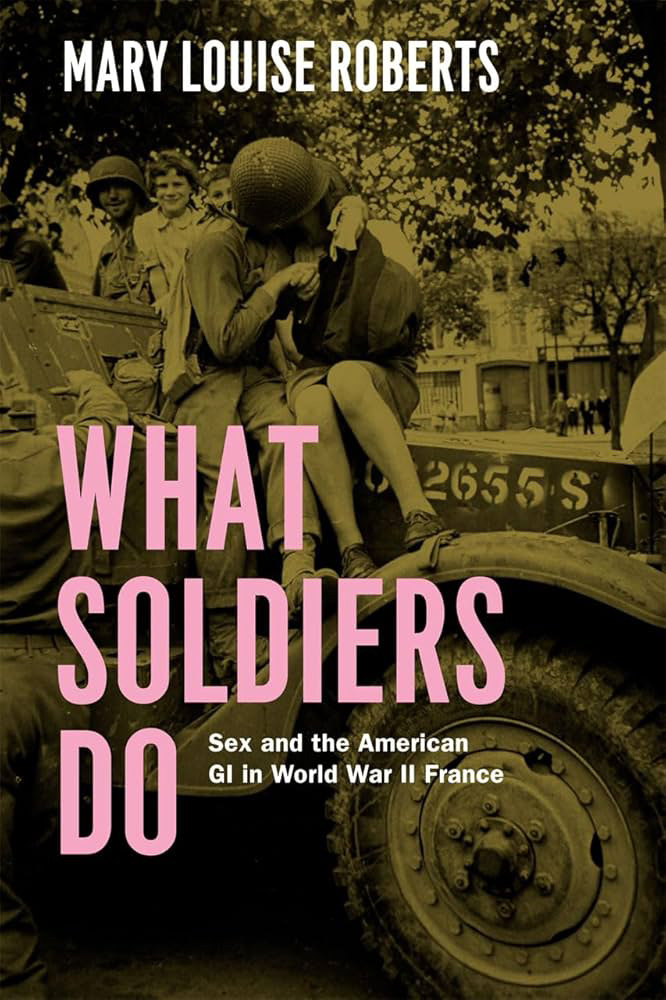
[Above: 'What Soldiers Do' is a 2013 book by Mary Louise Roberts which details the many rapes that occured in France by American soldiers. It even details Americans raping farm animals!]
Jean: Yes, I was sent to the invasion front to report. I can tell you the people did not view this as liberation. The Allies bombed, strafed, and terrorized the people caught there. The Germans tried their best to get them evacuated but the battle made this hard. I saw a column of refugees that the jabos [slang for American fighter-bombers] strafed, killing many, including children. They controlled the air and shot at anything moving. I saw a farmer who was strafed in his wagon while working in his field. The destruction was quite complete and in my opinion very needless. German units went out of their way to avoid using the towns as fortifications, unless it was absolutely necessary.
I did not find the Allies giving this any second thought, they would hit an area first, and then burst in after it was in flames and destroyed. The people say the looting was severe as well, and it is coming to light that some girls may have been raped by American soldiers during and after the battles, bet you did not know that. You see you get me talking and I can not help it. I want you to know the truth today but we can not tell it. For years I was told of the mistreatment and crimes but only a little bit could ever be spoken of, and it has to be said as no big deal. The SS units in Normandy fought bravely and with much honor. Those young lads in the HJ Division really gave a good account of themselves.
The battle lasted for many weeks, and we even had hope we could keep them bottled up but events in the east and south made it so we had no reinforcements and some regiments were pulled out to go help elsewhere. You would never know it today, but only a small force opposed the Allied landing, that is why they advanced so far that first day. The better units were far away from the invasion and some took two or three weeks to reach the front.
What was the end of the war like for you?
Jean: I was with French comrades in the end who still had faith our people would rise up. We gave thoughts of what we were to do as we knew the communists would seek revenge. They cloaked themselves as patriots of France, but this was a facade. Just like the communists in Germany today make films depicting officers as cruel uncaring robots. Slowly they erode pride in a nation's history and culture.
We stayed loyal right up until the end came, and we surrendered. We sought asylum in Switzerland but we were handed over to French communists who wanted to kill us all on the spot, but rumors were going around that all collaborators hid money and gold. You still hear tales of this today, they claim we looted and stole from people and hid the wealth.
This was far from the truth, but it kept us alive long enough for them to be forced to turn us over to the justice system for trial as traitors. This of course took many years, and all of us were subjected to abuse, torture, and humiliation by mainly communist guards. There was a mild revolution in France however as the emboldened communists attempted to usurp power from the de Gaulle government.
This was put down, and many thrown in jail with us where we had a reckoning if you will. A more right center party came to power and due to this he granted all of us amnesty, telling us we just went along because we had to. To get out of jail of course we winked and nodded. It was with great pain and sorrow I looked back and saw what we had lost.
My beloved France had murdered many of the patriots who only wanted a better life and world for us all. As former comrades looked each other up we took stock at those who fell at the hands of raging mobs in the end, men, women, and even children died. And for what reason? They only wanted to work with an idea that would unite every European to strive for mutual support and survival.
I have heard horror tales of the women who were on our side; they faced rape, beatings, torture, and humiliation. Listen to what our enemies want today, equality, tolerance, human rights, and free love. They do not practice this with their counterparts; they only showed hate and evilness.
[Above: Propaganda leaflets produced by the SS-Standarte 'Kurt Eggers' propaganda unit. The left and middle leaflets were dropped on Allies troops invading Italy in 1944. Click to see the reverse of the leaflets.]
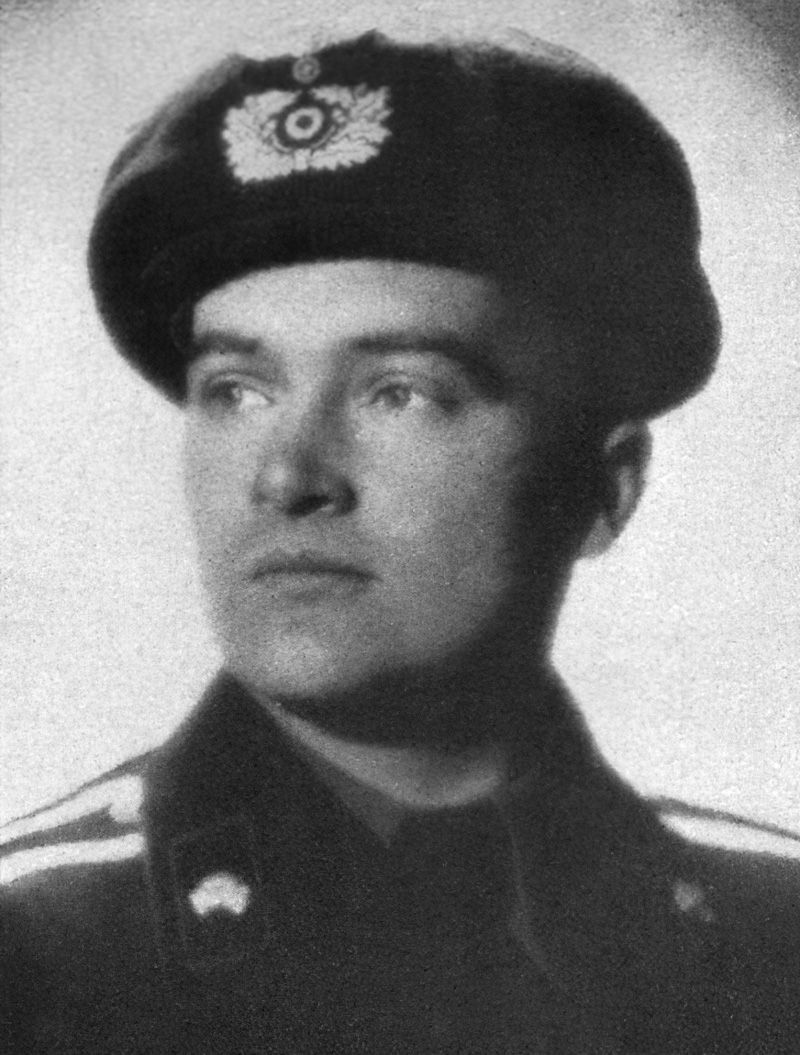
[Above: The hero, Kurt Eggers, in younger days. He gave his life on the eastern front on August 12, 1943, while serving in a tank regiment on the Eastern Front.]
